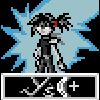My fall damage + regenerating health in a 2D game concepts have been recieved horribly. Why?
Why is this taboo?
Must be implementation-specific. I know lots of games that have fall damage and regenerating health where nobody complained.
Everyone seems to be upset at the mere concept. I havn't implemented it yet but I plan to very soon and everyone has acted like I was about to ruin my game. I saw this trend and I needed anwser.
It doesn't seem problematic in concept, however it is out of step with 2D tradition -- I can't think of a 2D game with fall-damage, traditionally you have only taken damage by falling onto/into an environmental hazzard, such as spikes or a pit, or simply die when falling from a very great height. It sounds like people are put off by this being something unexpected, or perhaps the mechanic or its specific implementation doesn't fit. Is your game in other ways a traditional 2D game (platformer?), but takes this one fairly unexpected departure?
throw table_exception("(? ???)? ? ???");
Because it is very well known that 2D platformer protagonists absorb vital energy from mystical roasted turkeys found deep inside the foundations of old castles.
"I AM ZE EMPRAH OPENGL 3.3 THE CORE, I DEMAND FROM THEE ZE SHADERZ AND MATRIXEZ"
My journals: dustArtemis ECS framework and Making a Terrain Generator
It doesn't seem problematic in concept, however it is out of step with 2D tradition -- I can't think of a 2D game with fall-damage, traditionally you have only taken damage by falling onto/into an environmental hazzard, such as spikes or a pit, or simply die when falling from a very great height. It sounds like people are put off by this being something unexpected, or perhaps the mechanic or its specific implementation doesn't fit. Is your game in other ways a traditional 2D game (platformer?), but takes this one fairly unexpected departure?
Well my game is well.....weird. The prespective might similar to a legend of zelda game but my game does not break prespective unless I need to make sense. I feel like I wasn't even given a chance.

So, its hard to say without seeing things in motion or playtesting, but based on your screenshot, it might be the case that its no apparent when the player is going to fall and take damage. In your shot I see what looks like a very slightly raisted platform (the white tiles), and grass, but along the right and top edge I see no visual indication that there's a height change from tile to tile. If greater disparities in height go similarly without visual indication, then I wouldn't expect to take damage either, and I'd be upset if I did.
On second glance, those blue pillars are floating, aren't they? and you mean that damage is taken when you fall from a blue pilar to the ground, which is either grass or white tile here -- is that right? I'd say that here you have non-clear visual communication about the height differences, owing to using a mixed-perspective. The ground appears to be in traditional 3/4ths overhead perspective, but the floating pillars appear to be in something closer to a traditional platforming side-view (as indicated by the shadows being in a straight row. And also if your player character has just fallen from the blue pilar above, why has he (she?) not landed next to its shadow?
I would guess that players are responding to the lack of visual cues and mixed messages regarding viewing angles.
throw table_exception("(? ???)? ? ???");
Additionally, I'm not sure of how well jumping puzzles are likely to work there: without checking the shadows (which seems likely to make jumping a little less intuitive), I'm not sure of how one would know whether to jump to the right, or to jump "up"/"north" and right to reach a given platform. If any of your platforms involve both vertical and horizontal offsets--a platform placed above, to the right and to the "north", for example--then the jump could get very awkward, I fear. Finally, any case in which the shadows are obscured--such as if the platform is too high above the next level below for them to be seen--would make the appropriate jump directions thoroughly non-obvious, and may even reduce to guesswork, which can be frustrating.
That said, how difficult would this be for you to prototype? If it's a feature for which you could whip up a small test-level in short order, then I suggest doing so: you'll get to try it yourself, and perhaps even get feedback on how it actually plays.
MWAHAHAHAHAHAHA!!!
My Twitter Account: @EbornIan












